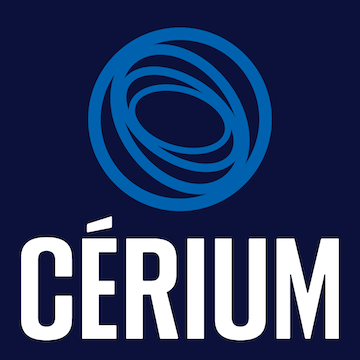Expert in: Risk Management
GRONDIN, David
Professeur titulaire, Chercheur, Responsable de programme
- War in mass media
- Surveillance studies
- United States
- Borders
- Political communication
- Armed Conflicts
- Border security and customs
- Security, international
- American studies
- International communication
- Popular culture
- Political violence
- Mobility studies
- Risk Management
- Globalisation in mass media
- Digital culture
- Mobilities research
- International mobility
- Mobility
- Algorithmic governmentality
- Empire and imperialism
- Nouvelles technologies
- Artificial intelligence
- Global Governance
- Migration
- Visual culture
- Social movements
- Cultural studies
- Media Studies
- International relations
- American politics
- North America
- Canada
- Modern Times
- Risks
I joined the department in 2017, after eleven years as a professor of international relations and American studies at the University of Ottawa's School of Political Studies. I'm happy to see my interdisciplinary inclinations find new ground via communication and media studies and to have been able to start a new chapter teaching international communication, political and media communication and popular culture, with a focus on war, infrastructure, mobility, power and media. I'm also in charge of the faculty's graduate programs in international studies, where I teach a course on the historical and contemporary role and place of the United States in the world, or the compulsory course on contemporary issues and debates in international studies.
Through communication, we are, consciously or unconsciously, in touch with the world, and I'm particularly interested in our relationship with digital governance - and by extension, digital media. I therefore pay particular attention to communication infrastructures, which leads me to study data and the new forms of control that the surveillance society puts into action in the digital age. As digital media, algorithms then become a favorite subject to better grasp both the media infrastructures of communication they embody and what they make possible as media technologies governing subjects and controlling spaces.
My current work focuses on technologies for controlling mobilities (circulation of people, capital, goods and digital data) involved in managing security risks in the digital context of Big Data, particularly with regard to borders, surveillance and governance. Thus, my research and teaching in international and political communication focus on the role of socio-technical infrastructures, power dynamics, actors, digital platforms, algorithms, artificial intelligence and the political mechanisms and modalities mobilized by contemporary forms of war, security and policing in the North American context. Finally, I maintain a constant research watch on the United States' preparation for war, with all that this implies in terms of the power of imagination, security and socio-technical imaginaries, innovation and research practices for the future of warfare, and the identity-related weight of cutting-edge technology for the American national security state apparatus.
More broadly, my research is divided into three strands: 1) the surveillance of mobility and algorithmic security, war (and its issues of disinformation and information) and the technopolitical infrastructures governing North American border spaces; 2) the relationship between war and society, the militarization of everyday life and the culture of the national security state in the United States; and 3) popular culture and American media cultures, with a focus on war and surveillance on the small and big screens.
In communications and international studies, I am well served by my interdisciplinary openness and indisciplinary perspective, which draws on the fields of international relations, geography and political anthropology, international political sociology, American studies, security studies and science, technology and society studies.
At the Université de Montréal, I divide my research time between the Centre d'études et de recherches internationales (CÉRIUM), the Laboratoire Culture populaire, connaissance et critique (CPCC), the Laboratoire de recherche sur la technologie, l'activisme et la sécurité (LarTAS) and the Centre international de criminologie comparée (CICC). I am also a research associate at the Observatoire international sur les impacts sociétaux de l'intelligence artificielle et du numérique (OBVIA) and a research associate at UQAM's Canada Research Chair on the Secure Governance of Bodies, Mobility and Borders (GSCMF).
